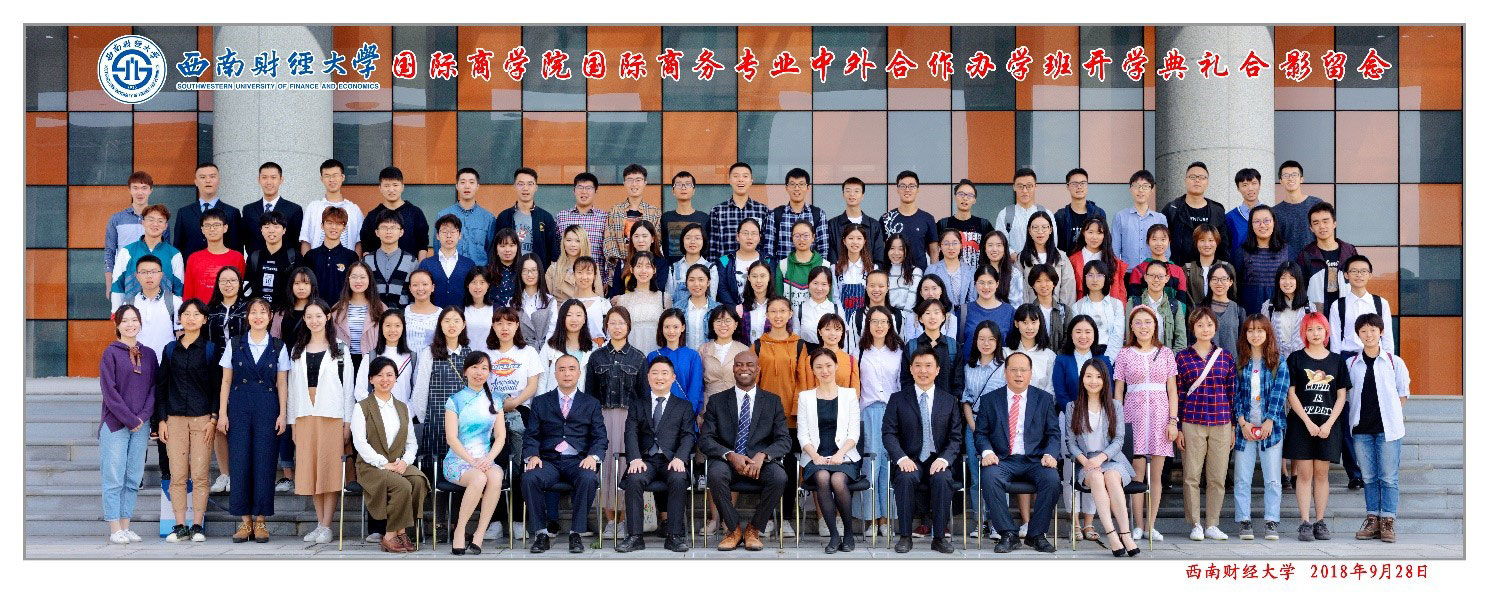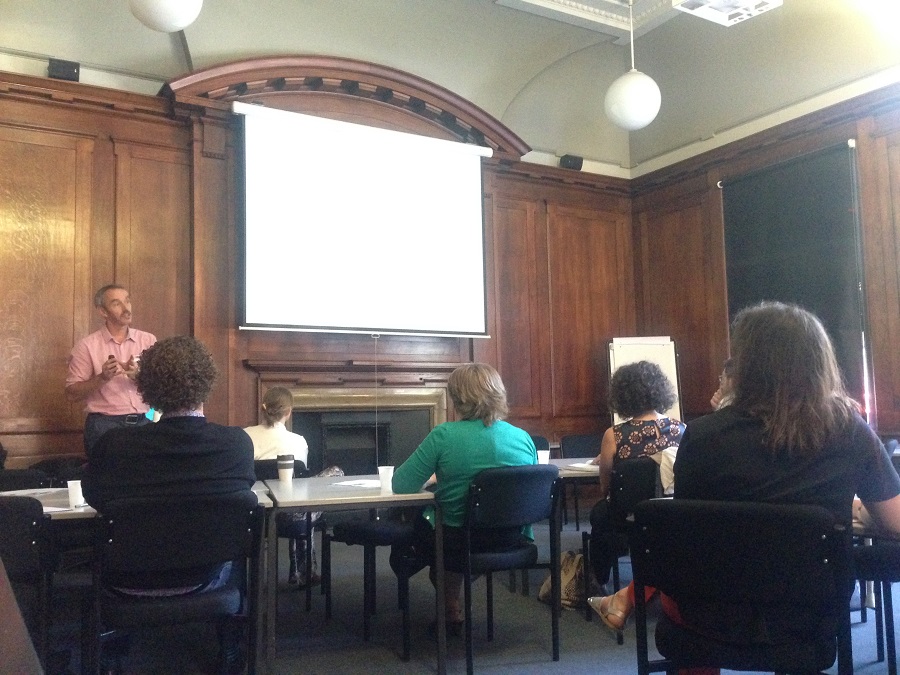Birkbeck counsellors, Jo Myddleton and Aura Rico and counselling students Michael Darko and Ishiabah Kasonga write about the collaborative approach they took when tailoring a well-being workshop for the needs of forced migrants, who were starting their academic journey at the College, through the Compass Project.
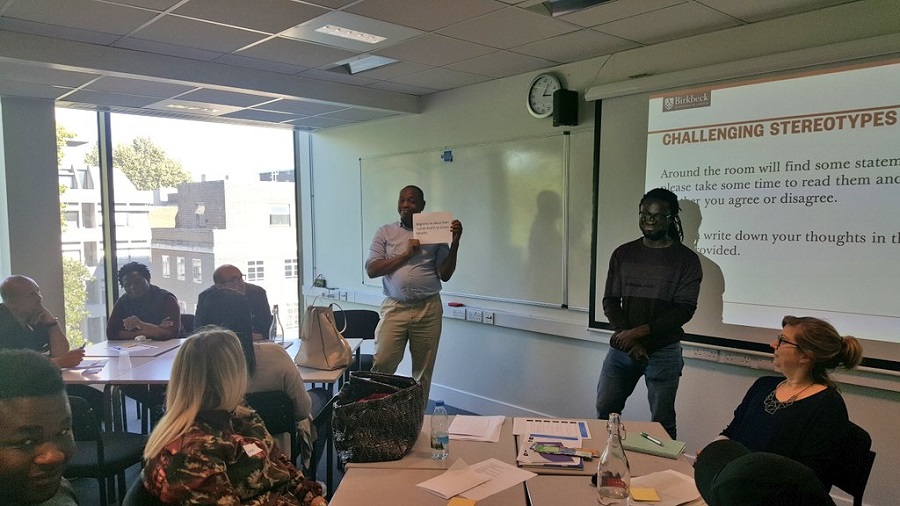
The Compass Project has welcomed its second cohort of students to study a university level qualification at Birkbeck, providing 17 fully funded places for those who have sought sanctuary in the UK. The project is unique within the sector, due to its focus on supporting mature forced migrants who may have missed out on accessing education and have faced difficulties in accessing educational opportunities owing to strict entry requirements and a lack of documentation to demonstrate academic ability.
This year, to support students in the start of their journey, the Access and Engagement department organised a two-day orientation, offering a space for students to get to know one another as well as raise awareness of the range of support available at Birkbeck and an introduction to the colleagues behind this.
Starting university can be an overwhelming experience for any student and with that in mind, running a session on mental health and well-being was a key topic to explore as part of the orientation. It was also important that we recognised that those from a forced migrant background are likely to present challenges that differ from the average student population. To ensure that the workshop on mental health was meaningful and in line with the needs of the students, the Counselling Service at Birkbeck partnered with two current students studying Counselling and Counselling Skills, and who had started their journey at Birkbeck through the Compass Project in 2017 – to ensure that the experiences and feelings of forced migrants were understood and addressed during the workshop.
On their experience of working collaboratively with Birkbeck students, Aura Rico and Jo Myddleton from the Counselling Service, said:
“When the Counselling Service was invited by the Compass Project to deliver a workshop on Culture Shock and Adjusting to University Life, we very much welcomed the opportunity to meet the new students and support them at the start of their journey through their courses at Birkbeck.
“We have been delivering these workshops for some time so the material was pretty much ready and we just needed to practise a bit and manage our public-speaking nerves. A few weeks before the event, however, Naureen got in touch: two of the current Compass Project students who are studying Counselling and Counselling Skills were keen to be involved in designing and delivering the workshop, to ensure that it particularly took into account the needs of those who have sought asylum.
“Looking back on it, we remember receiving this request with certain ambivalence: We know what we are doing and the workshop is ready to go, we thought. However, we also recognised that Michael and Kasonga would be particularly well-placed to add valuable insight for the benefit of the new intake of Compass Project students. We got on immediately with Michael and Kasonga: they were full of ideas and very perceptive about the specific challenges that Compass Project Students face. We found the meeting enlightening.
“As a result we re-designed our workshop, opening spaces for discussion and hoping to challenge stereotypes. Michael and Kasonga both spoke eloquently and honestly to the group of their own experiences as students within the Compass Project, which modelled openness to the current intake. This was then taken up in the group discussions, where experiences, feelings, assumptions and attitudes were shared and explored. It was a very enjoyable experience and thanks to this collaboration we feel we have a better understanding of the needs of our students and are better equipped to support them, and hope that should they need to, they will feel able to engage with the many different sources of support available at Birkbeck.”
Michael also talks about both his and Kasonga’s experience of working closely with the counselling team, both on a personal level and in bettering the support available to those who present with complex and different needs:
“I was in high spirits and full of excitement from passing my first year on the counselling course. Having navigated many ups and downs through my first year back at university. I was pleased to see an email from Naureen asking if any of us would like to be part of this workshop.
“I thought this was an excellent idea, so I jumped on board straight away. The chance of working alongside the counselling team at Birkbeck was very appealing but most importantly I felt that both the Counselling Service at Birkbeck and the College was genuinely interested in the value students could bring.
“I am a strong advocate for bolstering the voices of those who have gained insight and expertise through their experiences, so the decision to include students in this process showed me the level of commitment Birkbeck has to students’ well-being.
“I remember having a meeting with Kasonga and thinking to ourselves, ‘why do they want us to be involved?’ I mean the Counselling Service are the experts in this field and surely, they must have all the answers so why do they need us?
“Our first meeting with Aura proved to us just how much the Counselling Service here at Birkbeck is committed to student well-being. It became very clear that this was not about how good the Counselling Service is, rather, it was a genuine effort to better understand the needs of students and to become better equipped to support them.
“This was all about the students; we both felt valued, which gave us the confidence to open up and talk about our experiences as first-year students on the Compass Project, the challenges we faced and how we overcame those challenges.
“The Counselling Service team were very welcoming of our ideas and insight; the way both Aura and Jo designed the workshop was magnificent in the way that Kasonga and I could bring in our own experience as students within the compass project. Kasonga and I found it very easy and a real privilege to work with Aura and Jo.
“The workshop was structured brilliantly, the group discussions in which experiences, feelings, assumptions and attitudes were shared and explored worked well and I felt that everyone was engaged. The whole experience made me feel that I was in the best learning institution I could ever be and part of something.
“Thanks to this collaboration I feel there is a better understanding of the complex needs of the Compass Project students and the challenges that they face. I am confident that counselling and other available services here at Birkbeck are better equipped to support these students, and I hope that should they need to students will feel able to engage with the many different sources of support available at Birkbeck.
Special thanks to all those working hard behind the scenes to make sure that workshops and programmes such as these come to fruition, from Naureen and team to Aura and Jo, from the Counselling Service to all the donors of the Compass Project.”
The Counselling Services at Birkbeck is committed to improving the wellbeing and mental health of all Birkbeck students. They offer free, confidential, non-judgemental counselling to students – to support with their engagement and experience as a student at Birkbeck.
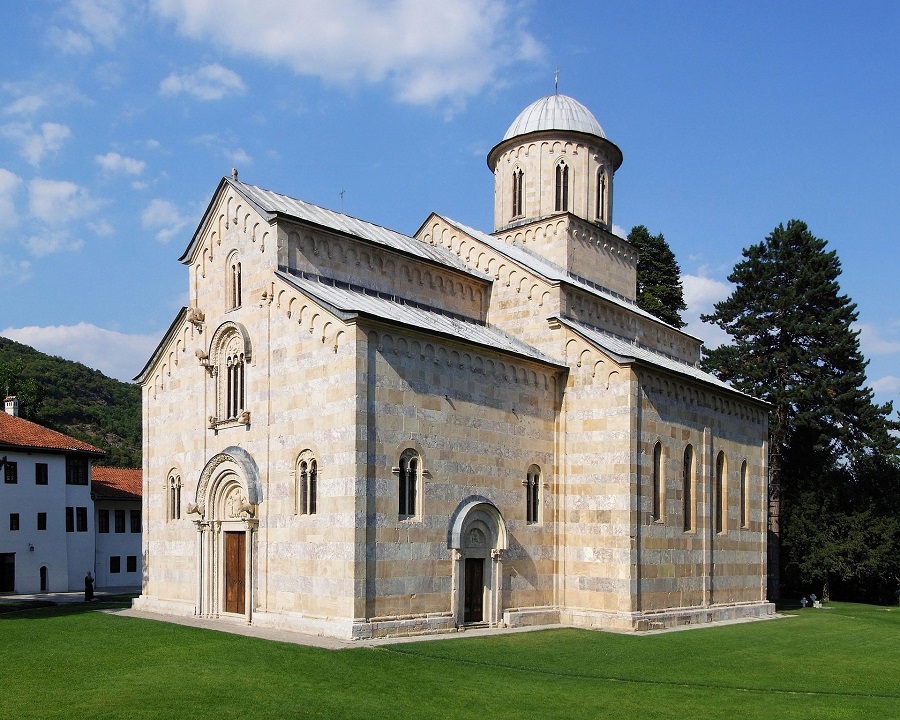
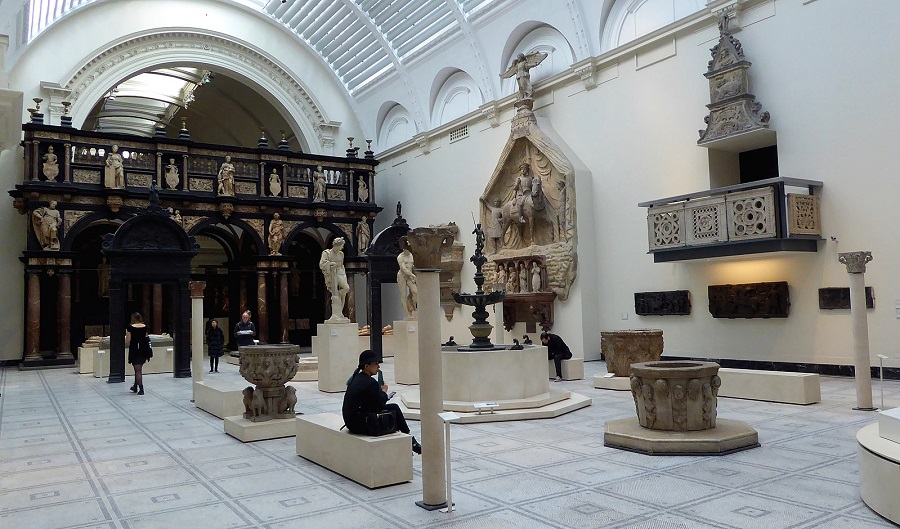
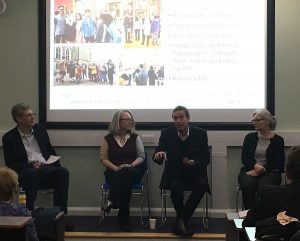 institutions.
institutions.